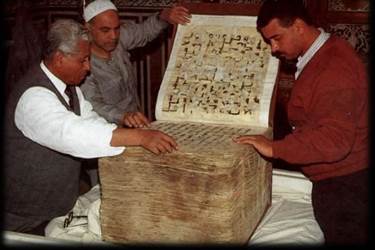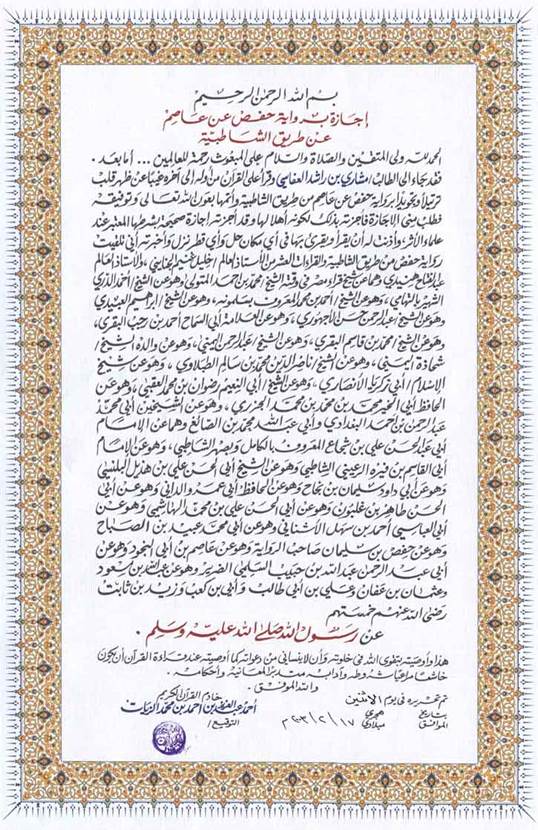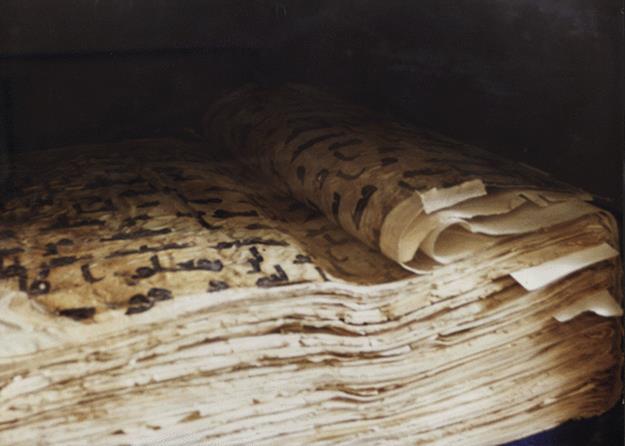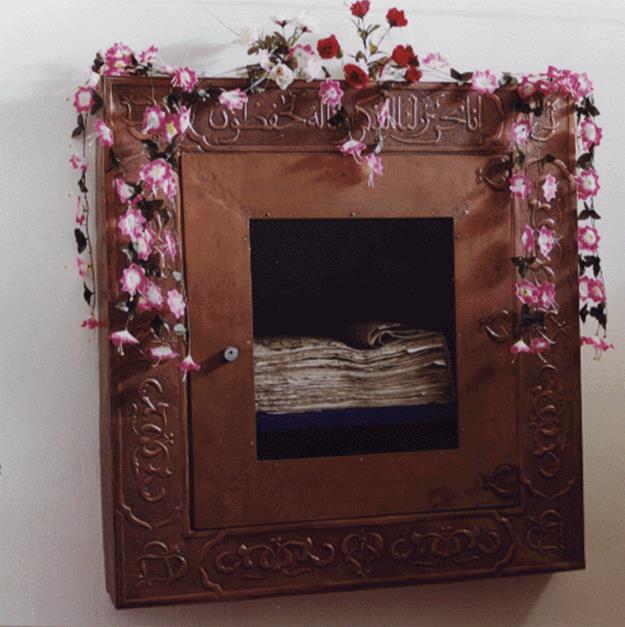Preservation of the Holy Quran
Description: The Quran has been preserved and transmitted like no other religious text of the world. It was transmitted primarily by memorization and in writing. This lesson gives evidence for this.
By Imam Mufti
Published on 15 Dec 2011 - Last modified on 25 Jun 2019
Printed: 848 - Emailed: 5 - Viewed: 251,153 (daily average: 49)
Objectives
·To appreciate the authenticity of the Holy Quran in its original form due to its meticulous preservation and transmission without any alteration.
·Establish one’s faith and conviction in the Holy Quran through evidence of its preservation and transmission.
Arabic Terms
·Sunnah - The word Sunnah has several meanings depending on the area of study however the meaning is generally accepted to be, whatever was reported that the Prophet said, did, or approved.
The Quran and the Sunnah of Prophet Muhammad are the two divinely revealed sources of Islam, and on them the Islamic faith and worship are based.
Someone might think, ‘Why is it important for a new Muslim to know about this topic?’ First, because knowing at least the basic information would increase his faith and confidence that he is on the straight path. He would feel his religion is not built on mere claims, but on revelation that Allah promised and actually preserved. Second, a person armed with basic knowledge is less likely to get affected by any doubts he will come across.
Allah says:
“Behold, it is We Ourselves who have bestowed from on high, step by step, this reminder and, behold, it is We who shall truly guard it (from all corruption).” (Quran 15:9)
Let us see evidence of how it has been preserved through the ages.
The Quran has been preserved and transmitted like no other religious text of the world. It was transmitted primarily by memorization and in writing as we will show.
Evidence Quran Preserved In Writing
At that time, there were no printing presses. Books had to be written manually by specialized scribes and making a copy required a similar effort. The Quran was dictated word by word and letter by letter by the Prophet himself to specialized scribes.[1] The Prophet passed away in 632 AD. Afterwards, Abu Bakr, the first leader of the Muslims, gathered the original scripts of the scribes into one book, and then some time later, when the Muslim empire stretched from East to West, Uthman, the son-in-law of the Prophet and the third Caliph, ordered five copies of the original to be made and distributed to all parts of the Muslim world some twenty years later.[2]
Today, we have three manuscripts of Quran which are traced back to the Prophet’s son-in-law, the Caliph Uthman.
(1) The Samarqand Manuscript located in Tashkent, Uzbekistan. It is written on a parchment from gazelle skin. According to Memory of the World Program, UNESCO, an arm of the United Nations, ‘it is the definitive version, known as the Mushaf of Uthman, superseding all other versions.’[3]
Mr. von Denffer, a German scholar, writes about the manuscript:
“It may be the Imam manuscript (name used for the copy kept by Uthman himself) or one of the other copies made at the time of Uthman.”[4]
Figure 1 This manuscript, held by the Muslim Board of Uzbekistan, is the earliest existent written version of the Quran. It is the definitive version, known as the Mushaf of Othman, superseding all other versions. Image courtesy of Memory of the World Register, UNESCO.
Figure 2 The Holy Quran of Othman in its glass-fronted safe. Image courtesy of Memory of the World Register, UNESCO.
(2) The Topkapi Palace Museum.[5]
(3) The third manuscript is kept in Al-Hussein Mosque, Cairo, Egypt and can be seen below.

Figure 3 An Early Quranic Manuscript At The Al-Hussein Mosque, Cairo, Egypt. Image courtesy of http://www.islamic-awareness.org.
Mr. von Denffer writes about it:
“...it is quite possible that it was copied from the Mushaf of Uthman.”[6]
Conclusion
It is best to conclude this portion with the Mr. von Denffer’s remarks:
“In other words, two of the copies of the Quran which were originally prepared in the time of Caliph Uthman, are still available to us today and their text and arrangement can be compared by anyone who cares to, with any other copy of the Quran, be it in print or handwriting, from any place or period of time. They will be found identical.”[7]
Evidence Quran Preserved By Memorization
Allah has made the Quran easy to memorize:
“And in truth We have made the Quran easy to remember; who, then, is willing to take it to heart?” (Quran 54:17)
The ease with which Quran is memorized is inimitable. There is not a single scripture or religious text in the world that is as easy to memorize, even non-Arabs commit the Quran to memory easily. Rarely do we find people having memorized the whole Bible, whereas, the entire Quran is memorized by almost every Islamic scholar and millions of ordinary Muslims, generation after generation. Almost every Muslim has some portion of the Quran memorized to read in his prayers. The following steps are traditionally taken to master the Quran:
First, the Quran is memorized by a child, males and females, at a fairly young age. The process usually takes 2-4 years.
Second, just memorizing the Quran is not sufficient. Quran is not just words, but sounds and meaning also. The Quran, must be voiced exactly the way it was read by Allah’s Prophet 1400 years ago. It has to be recited the way it was revealed by Allah. This is done by a rock-solid 1400 year old tradition of mastering the rules of recitation (tajweed) at the feet of a master who in turn acquired the knowledge from his teacher, an ‘un-broken chain’ going all the way back to the Prophet of Allah. The process usually takes 3-6 years. After mastery is achieved and the recitation checked for lack of errors, a person is granted a formal license (ijaza) certifying he or she has mastered the rules of recitation and can now recite the Quran the way it was recited by Muhammad, the Prophet of Allah.
A.T. Welch, a non-Muslim Orientalist, writes:
“For Muslims the Quran is much more than scripture or sacred literature in the usual Western sense. Its primary significance for the vast majority through the centuries has been in its oral form, the form in which it first appeared, as the “recitation” chanted by Muhammad to his followers over a period of about twenty years… The revelations were memorized by some of Muhammad’s followers during his lifetime, and the oral tradition that was thus established has had a continuous history ever since, in some ways independent of, and superior to, the written Quran… Through the centuries the oral tradition of the entire Quran has been maintained by professional reciters (kurra). Until recently, the significance of the recited Quran has seldom been fully appreciated in the West.”[8]
Not only the words of the Quran have been preserved, but the original sounds of those words have been preserved as well. No other religious text has been preserved in a similar manner – a claim any objective reader can verify for themselves. Thus, the Quran stands inimitable in its mode of preservation over the centuries as prophesized and promised by Allah Himself.

Figure 4 The image is a typical license (ijaza) issued at the end of perfecting Quran recitation certifying a reciter’s unbroken chain of instructors going back to the Prophet of Islam. The above image is the ijaza certificate of Qari Mishari bin Rashid al-Afasy, well known reciter from Kuwait, issued by Sheikh Ahmad al-Ziyyat. Image courtesy of http://www.alafasy.com.
Comment
Footnotes:
[1]‘Ulum al-Quran’ by Ahmad von Denffer, a German scholar, p. 43.
[2]For in-depth analysis, please refer to an excellent work by a Oxford University scholar, “The History of the Quranic Text from Revelation to Compilation: A Comparative Study with the Old and New Testaments” by Dr. Mustafa al-Azami.
I. Mendelsohn, "The Columbia University Copy Of The Samarqand Kufic Quran", The Moslem World, 1940, p. 357-358.
A. Jeffery & I. Mendelsohn, "The Orthography Of The Samarqand Quran Codex", Journal Of The American Oriental Society, 1942, Volume 62, pp. 175-195.
[4]‘Ulum al-Quran’ by Ahmad von Denffer, p. 63.
[5]Museum website is http://www.ee.bilkent.edu.tr/%7Ehistory/topkapi.html
[6]‘Ulum al-Quran’ by Ahmad von Denffer, p. 62.
[7] ‘Ulum al-Quran’ by Ahmad von Denffer, p. 64.
[8]The Encyclopedia of Islam, ‘The Quran in Muslim Life and Thought.’
Previous Lesson: Let’s Meet Muhammad (part 2 of 2)
Next Lesson: The Importance of Prayer (Salah)
- Let’s Meet Muhammad (part 1 of 2)
- Let’s Meet Muhammad (part 2 of 2)
- Preservation of the Holy Quran
- The Importance of Prayer (Salah)
- Etiquette of the Ritual Bath (Ghusl)
- Ablution (Wudoo)
- Prayer for Beginners (part 1 of 2): Beforeyou Pray
- Prayer for Beginners (part 2 of 2): A Description ofthe Prayer
- Spiritual Benefits of Prayer
- Medical Benefits of Prayer
- Manners of Relieving Oneself
- Menstruation
- Introduction to Dietary Laws in Islam
- An Introduction To Muslim Family (part 1 of 2)
- An Introduction To Muslim Family (part 2 of 2)
- Love of God and How to achieve it (part 1 of 2)
- Love of God and How to achieve it (part 2 of 2)
- An Introduction to Fasting
- How to Fast
- Eid and End of Ramadan
- Where Is Allah?
- Abraham (part 1 of 2)
- Abraham (part 2 of 2)
- Simple Explanation of Surah Al-Fatiha
- Simple Explanation of Three Short Surahs of Quran




